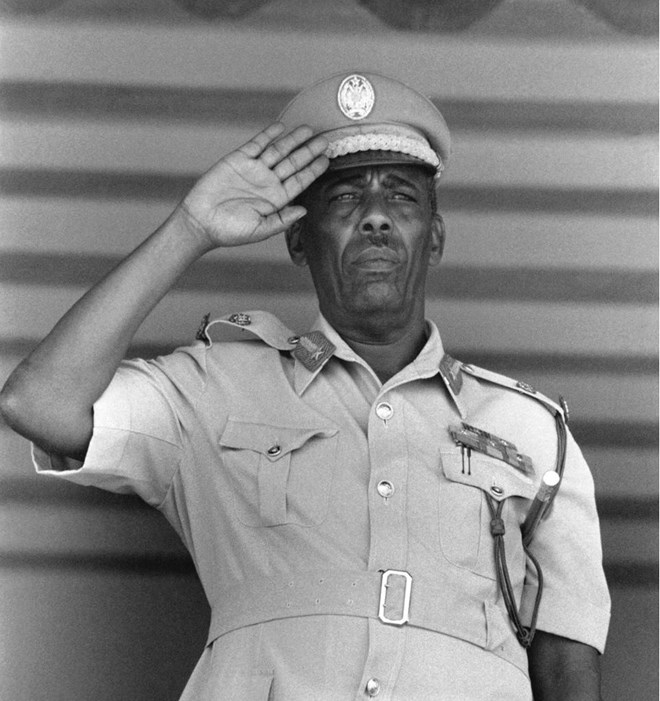
Monday January 23, 2023

Mohammed Siad Barre during an anniversary parade of the coup in October 1977 (Photo by Jean Claude FRANCOLON/Gamma-Rapho). (Getty Images)
Mogadishu (HOL) - On January 23, 1975, ten religious clerics in Somalia were executed in Somalia's capital by the government of President Siad Barre for protesting against a newly enacted Family Law (Xeerka Qoyska). The law, which was part of the government's revolutionary socialist agenda, aimed to modernize and secularize Somali society by making significant changes to traditional Islamic family structures and practices.
1. Sheikh Ahmed Sheikh Mohamed Haji Osman (Walaaleeye
2. Sheikh Ahmed Iman
3. Hassan Isse Jilibey
4. Sheikh Mohamed Siyad Hirsi
5. Sheikh Ali Jama Hirsi
6. Sheikh Ali Hassan Warsame
7. Sheikh Yasiin Elmi Awil
8. Sheikh Adan Ali Hirsi
9. Sheikh Suleyman Jama Mohamed
10. Sheikh Muse Yusuf.
The new family law ordered the equality of boys and girls in sharing their parents' inheritances, which was typically settled by Islamic inheritance jurisprudence meted out by clerics.
The government cracked down on the sheikhs and their followers in response to this opposition.
The religious clerics were among the most vocal critics of the new law. They argued that it violated Islamic law and traditional Somali values and called on their followers to reject it and resist its implementation.
A total of 35 clerics were rounded up between January 16-17 by the Somali National Security Forces (NSS) - led by Ahmed Saleebaan Dafle, Siad Barre's son-in-law - and accused of collaborating with foreign countries to foment dissent in Somalia. The execution of the ten clerics was seen as a particularly harsh measure and sparked widespread condemnation from the Somali people and the international community.
The Islamic leaders who were spared execution were sentenced to lengthy prison terms.
The murder of the sheikhs, according to critics, was a flagrant violation of human rights and displayed the government's contempt for the Somali people's religious and cultural traditions. They also pointed out that the legislation was a clear attempt by the socialist government to impose its ideological ideas on the populace and that it was likely to create further divisions and instability within Somalia.
The execution and the government's crackdown on religious dissent were major turning points in Somalia's history, contributing to the growing sense of discontent and opposition to the government.